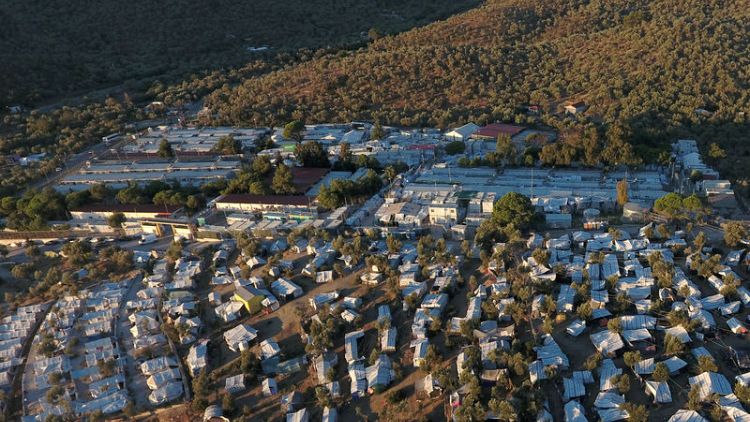By Karolina Tagaris
ATHENS (Reuters) - Over a dozen migrant boats landed on Greece's Lesbos island within minutes of each other on Thursday in the first such mass arrival from neighbouring Turkey in three years, officials said, prompting Greece to summon Turkey's ambassador.
In 2015, at the height of Europe's migrant crisis, thousands of people were arriving on Greek shores every day. The numbers dropped dramatically after the European Union and Ankara implemented a deal in March 2016 to cut off the flow.
Of the 56,000 refugees and migrants arriving in Europe this year, nearly half have been to a handful of Greek islands, and the number has risen in recent months, United Nations data shows.
Sixteen boats carrying about 650 people reached Lesbos on Thursday, 13 of those in under an hour, according to police and the United Nations refugee agency UNHCR.
"It surprised us. We haven't seen this type of simultaneous arrivals in this number since 2016," said Boris Cheshirkov, spokesman for UNHCR in Greece.
Foreign Minister Nikos Dendias summoned the Turkish ambassador on Friday to "express Greece's deep discontent" with the rise in flows from Turkey, diplomatic sources said. The ambassador said Turkey was "committed" to the EU-Turkey deal and that its policy had not changed, the sources said.
More than a million migrants and refugees, many fleeing conflict and poverty in the Middle East and Africa, arrived in the European Union in 2015. Turkey was one of the main launch points.
Most of Thursday's arrivals in Lesbos will be taken to the Moria camp, Europe's largest migrant reception centre, holding about four times more people than it was designed to.
"It's a cause for concern," Cheshirkov said.
Conditions at Moria have repeatedly been described by humanitarian organisations as overcrowded, unsafe and inhumane.
An Afghan boy was killed and two others were injured in a fight there this month.
The number of monthly arrivals to Greece jumped in August to about 7,000, the highest in three years. Most are families from Afghanistan, aid organisations say.
Moria, which has spilled over to an adjoining olive grove, now holds more than 10,000 people but all of the country's five island facilities are overcrowded.
More than 25,000 people are in the camps, also the highest number in three years. Each of them operate at two or three times their capacity.
Greece's recently-elected Prime Minister Kyriakos Mitsotakis has said his government will speed up the processing of asylum claims in an effort to alleviate the situation.
UNHCR has called on the government to take measures to end overcrowding.
"The priority should be to alleviate the humanitarian situation, which means moving people out of overcrowded facilities and finding appropriate places on the mainland," Cheshirkov said.
"It's an urgent situation," he said. "We have elderly, single mothers, unaccompanied children, people with physical impairment, survivors of trafficking and sexual abuse."
(Editing by Frances Kerry)
